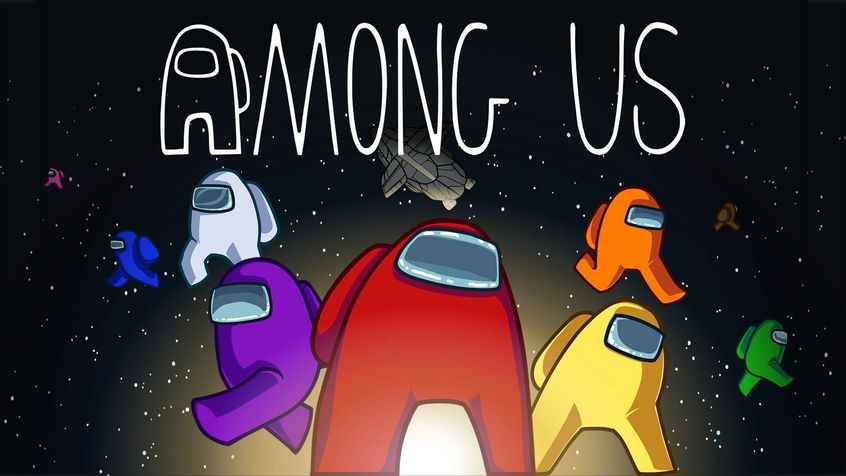Among Us
A quick caveat on this one. I think it’s important to know that I did not come into this game all fresh-faced and naive. I may have played it a bit in advance.
![]() Just a bit.
Just a bit.
Like many in 2020, I found Among Us. I set up my own server so I could have a dedicated friend group to play with, and for weeks, we would be there, playing every night, having a good time, perfecting our bluffs, sussing out killers, and building our own universe of Among Us memes. This playthrough was not my first experience with Among Us.
But you may have noticed that all of that was in past tense. There came a point where the calls to join Among Us games went unanswered, where people dropped off and migrated to other games, where even our core group just didn’t want to play anymore. As much as this will be a review of the game, it will also be an answer to the question no one asked - where did Among Us go? Why did groups like mine end?
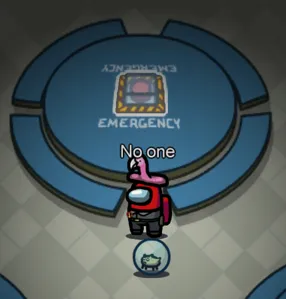 All alone with a big red button
All alone with a big red button
First, the mechanics. Part of why Among Us is so appealing as a party game is because of its simplicity. You play a crewmate in some isolated location, be it space, Antarctica, or the sky. Some number of your fellow crewmates - between one and three - are not actually crewmates, but rather, impostors, hell-bent on your dismemberment and destruction. The crew must figure out who the impostors are and solve the various crises plaguing the ship before they are killed. The impostors must kill as many crewmates as they can.
It’s very simple, but also, inherently complex. Social deduction and social cues always are. The system my group worked out was to have conversations on voice chat (Among Us’ text chat system is pretty abysmal, and has gotten clunkier each patch), slowly pacing through everyone’s location and deducing who was lying from there. The best impostors never lied, and the best plays were always to subtly cast blame on someone else. One of our memes is “most voted off,” because of how good some of us got at this.
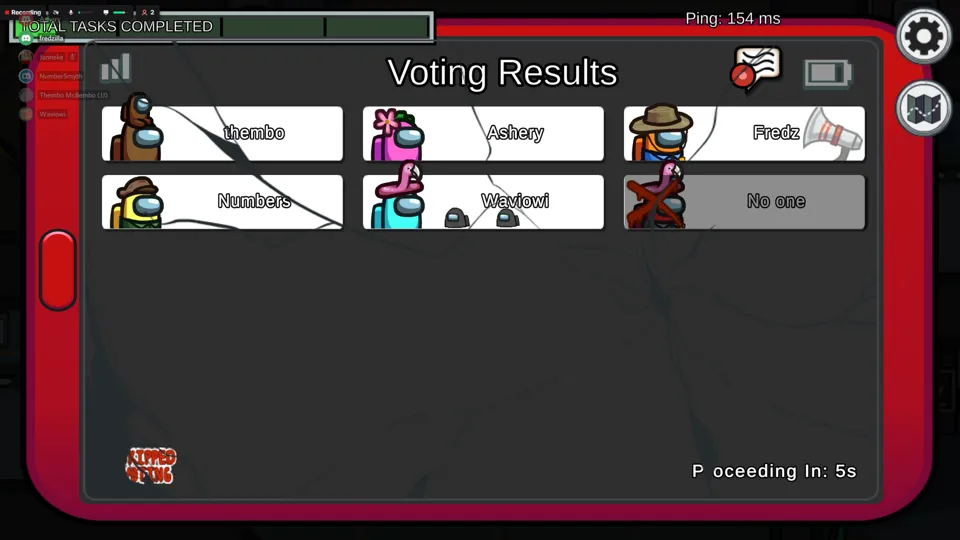 At least we’ve established that someone did it.
At least we’ve established that someone did it.
That tension of solving the mystery is what powers the game. Every time you load it up, there is an entirely new story, new dramas, new arguments to pick. For my part, when I’m impostor, I’m less good at the social manipulation, and better at the sheer brash murders. My favourite plays are to waltz into a room with two people, kill one, and blame the other. It works more often than it should, and leaves absolutely chaos in its wake.
It’s these stories that make the game so great. We spend the five minutes per game or so engrossed in the story of those five minutes. The most important thing is who turned off a leaking oxygen vent, or who was in electrical flicking switches. Our two minutes of discussion might be spent just arguing basic facts of who was where, where no one can trust anything anyone else says, where reality itself is up for debate, and your perception of it is cast into doubt.
Arguing basic facts. Shedding doubt on your very perception of reality.
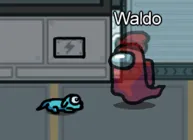 We know where this is going.
We know where this is going.
Among Us, at its core, can be viewed and played as an abuse simulator where we go through the experience of emotional abuse in a space where it is safe to do so.
I’ve written about this before , and that post represents when I really stopped playing Among Us. There are a few reasons, but I think the story of one game sums it up.
I was playing impostor and did my usual schtick of walking into a room, killing one person, and leaving the other to take the fall. Only, the person didn’t see the first body, and so I got to do it twice, waltzing in, pinning a second kill on them, and then reporting it because I thought I could win people over in the discussion. The discussion panel opened, I unmuted my voice chat, and I jumped in. My friend explained where she was, explained what she had seen, and I responded by telling her she was wrong. That she was wrong about where she was and the basic facts of the round. She went quiet, then said “I don’t know what’s real anymore.”
I won the game, but what she said stuck with me in a deep, uncomfortable way, niggling in my mind as a thought of what I had done.
I won’t rehash the post I’ve already written, but I will say that seeing Among Us as the next game on the list in this project was uncomfortable, and part of me wanted to skip it. As I said last week, games are a space for us to stretch into something we might not otherwise experience. They’re a chance to see the world through another lens and gain a greater understanding of the reality around us. In the case of Among Us, we’re granted the perspective of an emotional abuser, and the perspective of their victim. The short rounds and all their dramatic tension get to be all the drama of an abusive relationship in brief.
That I have a high win rate as impostor is a truth that bothers me. It’s why I stopped playing.
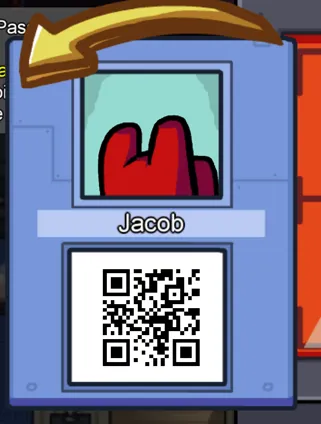 A screenshot from Among Us
A screenshot from Among Us
Among Us is very, very good at what it wants to be. It is a game with cathartic little puzzles where you can spend time with a group of friends, discussing a mystery and solving it together. It is also a game that has the potential to bring out the worst in us, simply by its nature of shielding us behind a simple narrative and letting us loose. I stopped playing because Among Us brought out the worst in who I could be, and did so in a way that impacted real people. Though it’s in the context of a game, that doesn’t change the impact of the punches. Though we learn these emotions in a space we can leave, that doesn’t change the lessons we’re taught.
I value the time I spent playing Among Us. I had a great time with my friends, and I wouldn’t trade those 114 hours for anything. However, I won’t go back to Among Us because what’s among us is an experience that hits too close to home to be fun anymore.
Developer: Innersloth
Genre: Party, Social Deduction
Year: 2018
Country: American
Language: English
Play Time: Time Loses All Meaning In Among Us
